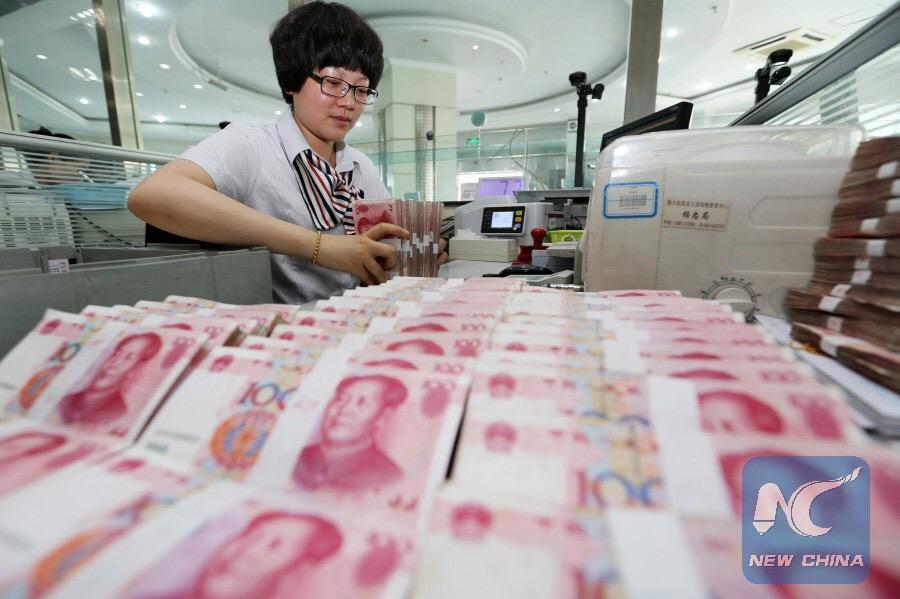BEIJING, Feb. 3 (Xinhua) -- China's central bank pumped 1.2 trillion yuan (173.3 billion U.S. dollars) into the financial system via reverse repos on Monday.
The People's Bank of China (PBOC) injected 300 billion yuan into the market through seven-day reverse repos at an interest rate of 2.4 percent and conducted 900 billion yuan of 14-day reverse repos at an interest rate of 2.55 percent.
A total of 1.05 trillion yuan of reverse repos matured Monday, resulting in a net injection of 150 billion yuan. This will lead to 900 billion yuan more liquidity in the banking system than that recorded in the same period last year, the PBOC said in an online statement.
The move aims to offset the impact of reverse repos maturing and the concentrated maturing of financial market funds and to keep liquidity in the banking system at a reasonably sufficient level in the epidemic control period.
The PBOC said it would continue to keep a close eye on liquidity during the epidemic control and maintain liquidity at a reasonably ample level.
Meanwhile, the Monday injection saw interest rates down by 10 basis points for both seven-day and 14-day reverse repos, which analysts call a rare adjustment.
"Usually we see a lower interest rate for the medium-term lending facility (MLF) first, the PBOC jumped to lowering the reverse repo rate out of the main target of ensuring a stable stock market," said Yan Se, a chief analyst with brokerage firm Founder Securities.
Chinese banks get funds with even longer maturities -- typically three months to a year -- from the PBOC through the MLF. The funding channel, introduced in 2014, allows the central bank to inject liquidity into the banking system and influence interest rates for longer-term loans.
Yan said the PBOC might reduce the MLF policy rate in the near future.
Wen Bin, the chief analyst at China Minsheng Bank, said the reduction reflected the central bank's efforts to lead the lower interest rate level in the financial market, better serve the real economy and improve its ability to cope with the impact of the epidemic.
Wen expected a 10-basis-points reduction of the MLF rate likely to be announced early next month, which will effectively reduce fund-raising costs for the real economy.




 A single purchase
A single purchase









